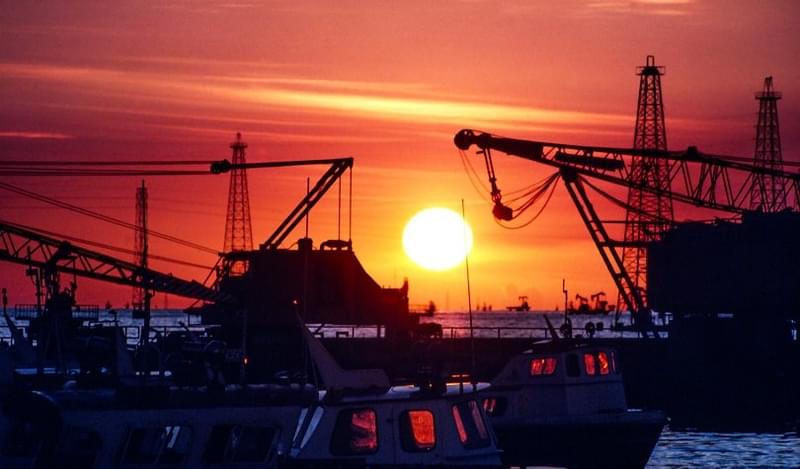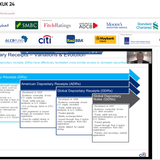Faced with growing liquidity shortfalls, ballooning debt and swelling demurrage costs, Venezuela's state-owned oil company PDVSA earlier this month finally decided to take action by offering to swap $7.1bn worth of bonds maturing next year for longer-dated notes.
The move, known as a “distressed exchange,” received a tepid response from investors. The one-to-one ratio and the full value of its 2017 debt came across as excessively optimistic for a company that has, along with Venezuela’s government, racked up a total debt of over $15bn.
Days later, PDVSA has come out with a revised – and more realistic – proposal that will see it aim to repurchase $5.325bn worth of outstanding bonds. The company is seeking $1,220 for every $1,000 in November notes and $1,170 for every $1,000 for the April 2017 notes.
The deal also includes 50.1% of PDVSA’s US subsidiary Citgo as collateral, to be finalized by the extended deadline of Oct. 6. Swaps taking place after the cut-off date will be subject to the revised terms of $50 less per $1000 principal.
The consensus in the industry is that the move will allow PDVSA and Venezuela to buy some time until oil prices can begin to recover. As a report recently penned by Nomura Holdings concludes, the improved terms for a potentially successful exchange “would provide breathing room for next year,” but the move still feels like a delay tactic “that requires increasingly extreme financing options.”
Nevertheless, PDVSA’s April 2017 notes rallied 4.8% and November 2017s 3.5% following the announcement. Investors have so far displayed reserved optimism regarding the new and improved terms, but a number of fresh legal and political questions cast doubt on the effectiveness of the solution.
S&P assigned the triple-C rating to the initial bond swap offer and Fitch is expected to do the same, essentially designating it with a formal default status. That is, even if the swap gets a green light from regulators, which is far from certain considering the woeful lack of official information and its dubious legal nature.
Authorities and legal experts are questioning the involvement of PDVSA’s chunk of the Citgo refinery as a security in the deal, which some suggest ought to automatically activate a “negative pledge” clause in PDVSA’s bonds.
The difficulty in assessing Venezuela’s cashflows stems from limited data transparency, lack of reporting about holdings, continuing insolvency risk and the generally secretive nature of the deal’s terms. It is thus likely to attract speculative traders rather than real money investors.
The second factor – continuing political and social turmoil in the Latin American state – is perhaps less relevant in the short term, as the government’s desire to avoid defaulting at all costs may actually convince investors of sufficient willingness to pay.
Yet the main concern is “ability to pay” and, according to Nomura’s estimates, a participation rate of at least 75% would be required to reassure investors about rollover risks that would extend the price gains on its 2017 maturities.
Ultimately, success or failure of PDVSA’s gamble rests almost solely on the economic and political outlook of the country. For now, Venezuela still maintains fairly strong ties with the more powerful partners like Russia and China.
Russia has recently agreed to defer repayment of the $2.9bn it is owed by Caracas, and even announced a new joint venture between state oil giants Rosneft and PDVSA to develop the Patao and Mejillones oil fields.
But increased demurrage costs and growing operational and logistical problems in the crisis-hit country mean that even remaining allies are quickly losing patience with Maduro’s government.
On paper, Chinese officials continue to talk about a strong relationship that “brought practical benefits to both sides,” a notion somewhat divorced from reality according to analysts. The stream of investment from Beijing is drying up fast as the Chinese look to cut their losses and demand guarantees on about $20bn worth of loans. More worryingly for Maduro, Beijing has already been talking to the Venezuelan opposition in anticipation of potential regime change.
For PDVSA, it means that for now, extreme moves like bond swaps and depleting its FX reserves could take it through this year and perhaps even rationalize the recent gains on its 2017 notes. An unlikely spike in the oil price could potentially further ease pressure on the struggling economy.
But, as Siobhan Morden from Nomura points out: “The current regime has no understanding of economic problems and shows no desire to reform.” Perhaps the most important question of all is whether the opportunity to implement structural reforms – and save the country’s economy – has been totally eclipsed by political mismanagement: is it already too late?









